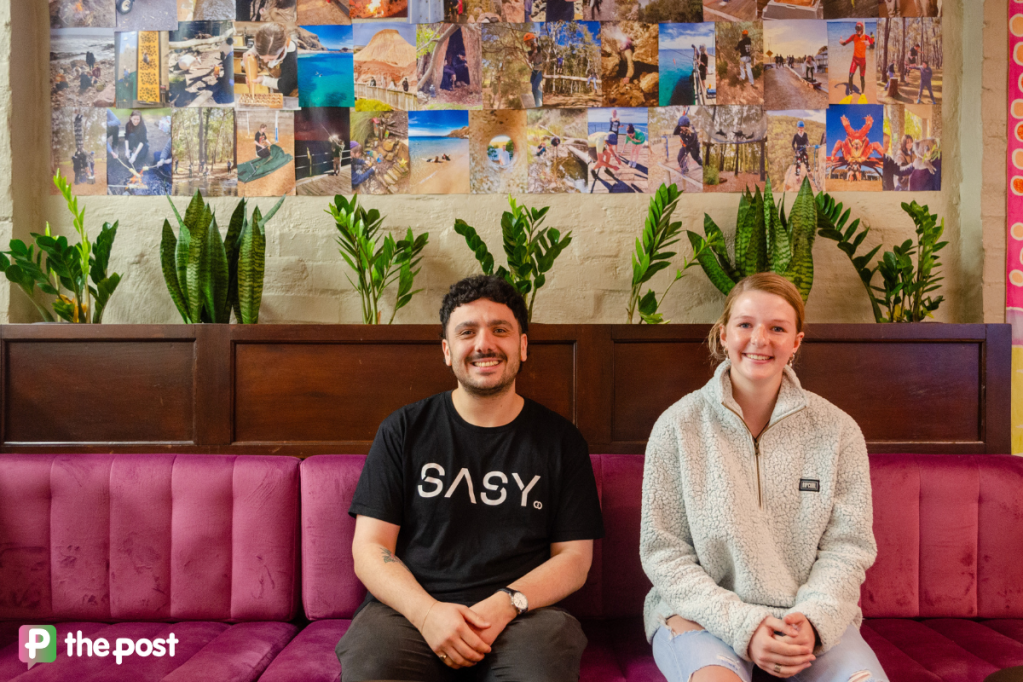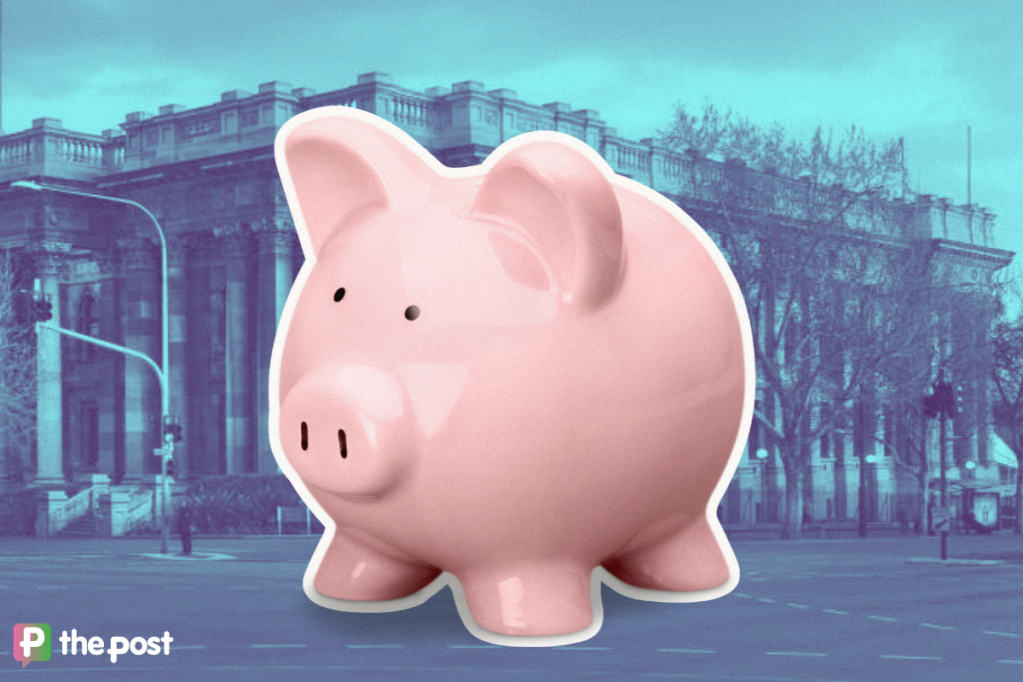What we know today, Monday May 10
Today’s breaking news from South Australia, the nation and abroad.

- Albanese blasts ‘showbag’ budget
- Seven dead in US shooting
- Pfizer vaccine coming for 40-49s in NSW
- Bert Newton has leg amputated
- Big infrastructure cash boost in budget
- State grants add almost $50 million to building boom
- India turns to army medics as virus deaths surge
- JobKeeper cliff did not happen: study
- Scots prepare for new independence bid
- Kabul blast death toll hits 68
Albanese blasts ‘showbag’ budget
Opposition Leader Anthony Albanese has likened this year’s budget to a tacky showbag as the Morrison government continues to trundle out billions of dollars worth of initiatives.
In the latest round of budget leaks, Treasurer Josh Frydenberg will announce $10 billion worth of infrastructure spending over the next decade on Tuesday night, as well as some adjustments to superannuation for older Australians.
What remains unclear is how big the government’s promised funding for aged care will be, which could be now almost double initial estimates.
“This is like a showbag budget, a budget that looks pretty flashy but when you take it home it only last a few days or a few weeks,” Albanese told reporters in Canberra on Monday.
“There is no lasting legacy from this government except for a trillion dollars of debt, no substantial economic reform, no plan to deal with stagnant wages, no plan to deal with living standards under real pressure.”
Finance Minister Simon Birmingham has declined to confirm reports the aged care package could be almost $18 billion over four years.
The government has only confirmed the package will be worth more than $10 billion over the forward estimates.
“We will provide a response to the aged care royal commission, which will be a once-in-a-generation investment in additional services in aged care, focused on the quality and safety of aged care for all Australians,” Senator Birmingham told ABC radio.
However, even if the latest figure proves to be true, it is still seen as inadequate.
The Royal Australasian College of Physicians points out the royal commission into aged care estimated successive government cuts had already left a shortfall of almost $10 billion annually.
“The findings of the royal commission were damning,” RACP spokesman John Maddison said.
“They mandate a more significant commitment from government that makes delivering all their recommendations possible – not a temporary boost that kicks the can down the road.”
But Senator Birmingham disputed some of the budget reductions being reported in aged care.
“We have seen continued growth in investment, and indeed under our government we have also substantially invested in recent times in home care packages,” he said.
Seven dead in US shooting
A man has shot six people to death including his girlfriend before turning the gun on himself at a birthday party in the US city of Colorado Springs, sparing the children who were present inside a trailer at a mobile home park.
Police arrived to find six people dead plus a seventh who was seriously wounded and died after being taken to a hospital, the statement said.
“The suspect, a boyfriend of one of the female victims, drove to the residence, walked inside and began shooting people at the party before taking his own life,” said a statement released by the Colorado Springs Police Department on Sunday.
“Friends, family, and children were gathered inside the trailer to celebrate when the shooting occurred,” the statement said.
A motive has yet to be determined.
The shooting happened within the Canterbury Manufactured Home Community, a mobile home park of some 470 trailers and largely Latino residents on the southeast side of town, near the Colorado Springs airport, about 110 kilometres south of Denver.
Police blocked off the area, where a mobile crime lab was parked near the home. A small group of adults stood nearby, some of them audibly sobbing, along with a small child.
Freddie Marquez, 33, said his mother-in-law was one of the victims and he was at the party but left around 10:30pm on Saturday.
You might like
Some time after midnight, he received a call from the son of one of the women at the party, who was crying on the phone.
“Somebody came in and shot everybody,” Marquez said, relating what he had been told on the phone.
The massacre was the latest in a resurgence of mass shootings in the United States after such occurrences seemed to recede during the height of coronavirus pandemic restrictions.
Among the incidents this year was one in Boulder, Colorado, where a 21-year-old man has been charged with killing 10 people in a March 22 shooting spree at a supermarket about 50 km northwest of Denver.
That came less than a week after another 21-year-old gunman was accused of killing eight people at three Atlanta-area day spas.
Pfizer vaccine coming for 40-49s in NSW
People in NSW aged between 40 and 49 could get a Pfizer COVID-19 jab at the new purpose-built vaccination hub at Sydney Olympic Park within weeks.
Premier Gladys Berejiklian announced the “exciting” development at the opening of the government-run Homebush hub on Monday.
“People aged 40 to 49 can register their interest in getting that Pfizer injection from 5pm today at nsw.gov.au,” she said this morning.
For the first two weeks, the vaccination hub will be open to people in categories 1a and 1b – emergency and aged care workers, front-line workers and their families.
From Wednesday, anyone 50 or older can register to get the AstraZeneca vaccine at the hub from May 24.
The premier is still urging anyone 50 or older to go and get vaccinated by their GP.
“If you don’t have a GP or don’t have access to a GP, or you find it difficult getting to them, you can book with us from 12 May and get your jab from 24th May,” she said.
Meanwhile, NSW Chief Health Officer Kerry Chant indicated there had been no further cases of COVID-19 detected in the community.
“In terms of the numbers, we’ll release the official numbers at 11am as per usual. There’s nothing particularly of concern in those numbers,” she said.
Coronavirus restrictions imposed across Greater Sydney last Thursday will stay in place for another week, except mask-wearing for customers in retail settings.
Bert Newton has leg amputated
TV legend Bert Newton has needed a leg amputation because of a life-threatening infection.
The 82-year-old had the surgery in Melbourne on Saturday.
Newton is believed to have been in hospital for the past six weeks, after a toe infection over Christmas failed to heal.
Radio entertainment reporter Peter Ford broke the news on Monday morning after receiving a call from Patti Newton on Sunday night.
“Bert was given the ultimatum, you only have a couple of months to live but if you have this operation and we amputate your leg you could have many years ahead,” he told 3AW.
“So that was the choice and Bert clearly chose to stick around, because he adores Patti, obviously he adores the children, he adores the grandchildren.”
He said Bert Newton is in “reasonably good spirits”, and his leg has been amputated below the knee.
A series of specialist doctors and vascular surgeons had investigated the worsening infection, although it had not seemed too serious when it began around Christmas.
In a horror run of health for the popular showbiz couple, Patti Newton is also recovering from a broken ankle after a fall.
Her management says she will not be making any further comments at this stage.
Newton has battled several health issues in the past, including hospitalisation with pneumonia in 2017.
He also underwent quadruple bypass surgery the following year.
Big infrastructure cash boost in budget
South Australian road and rail projects are in for major funding boosts in tomorrow night’s federal budget, with the Morrison Government set to announce more than $5 billion for infrastructure projects to support thousands of jobs.
Local projects are set to include $161.6 million for a Sturt Highway bypass around the town of Truro and $64 million towards sealing the outback Strzelecki Track.
Extra cash for a Heysen Tunnel upgrade, electrification of the Gawler rail line and the Darlington to Anzac Highway section of the North-South Corridor are also believed to be included in the budget.
Deputy Prime Minister and Infrastructure Minister Michael McCormack said the substantial new funding is a key plank of the government’s plan to help Australia bounce back stronger than ever from the pandemic.
“More money for infrastructure means more jobs, more local procurement and a better future for businesses across the country and that’s why this investment is the centrepiece of our National Economic Recovery Plan,” he said.
Treasurer Josh Frydenberg will hand down his third budget on Tuesday.
Other key projects include a $2 billion initial investment for a new Melbourne Intermodal Terminal and $2.03 billion for the Great Western Highway Upgrade – Katoomba to Lithgow – in NSW.
State grants add almost $50 million to building boom
More than 3250 South Australians have received the State Government’s $15,000 First Home Owner Grant grants so far this financial year, surpassing recent years’ numbers with two months left to go.
The surge coincides with the Federal Government’s HomeBuilder scheme, which is also driving new home approvals and home lending rates to record levels.
According to state government data, 1,453 South Australians have received the government’s $15,000 First Home Owner Grant so far this calendar year for the purchase or construction of a new residential property, including a house, flat, unit, townhouse or apartment, making it the best start to a year in seven years.
With two months of the financial year to go, 2020-21 has already smashed recent years’ results with a total of 3258 people receiving the grant worth a total of almost $49 million.
Treasurer Rob Lucas welcomed the figures as further evidence of the state’s strong ongoing economic and jobs recovery from COVID-19.
Lucas said the latest Treasury data showed around 2400 recipients of the First Home Owner Grant had also applied for the Federal Government’s $25,000 (and $15,000) HomeBuilder grant.
Stay informed, daily
“We know South Australia is experiencing a massive housing and construction boom, which is great for local jobs, and it’s pleasing to see young South Australian first home buyers driving part of that economic activity,” he said.
India turns to army medics as virus deaths surge
India will recruit hundreds of former army medics to support its overwhelmed healthcare system, as the country grapples with record COVID-19 infections and deaths.
The move comes amid calls for a complete nationwide lockdown.
Some 400 medical officers are expected to serve on contract for a maximum of 11 months, the ministry said in a press release on Sunday, adding that other defence doctors had also been contacted for online consultations.
COVID-19 cases and deaths have been hitting records every two or three days. Deaths rose by more than 4000 for a second consecutive day on Sunday.
Many Indian states have imposed strict lockdowns over the past month while others have announced restrictions on public movement and shut down cinemas, restaurants, pubs and shopping malls.
But pressure is mounting on Prime Minister Narendra Modi to announce a nationwide lockdown as it did during the first wave last year.
The Indian Medical Association called for a “complete, well-planned, pre-announced” lockdown instead of sporadic night curfews and restrictions imposed by states for a few days at a time.
Top White House coronavirus adviser Dr Anthony Fauci said on Sunday he has advised Indian authorities they need to shut down.
Modi is battling criticism for allowing huge gatherings at a religious festival and holding large election rallies over the past two months even as COVID-19 cases were surging.
The health ministry reported 4092 deaths over the past 24 hours, taking the overall death toll to 242,362. New cases rose by 403,738, just shy of the record and increasing the total since the start of the pandemic to 22.3 million.
India on Saturday reported its highest ever single-day COVID-19 death toll of 4,187. The Institute for Health Metrics and Evaluation estimates that India will see 1 million COVID-19 deaths by August.
With an acute shortage of oxygen and beds in many hospitals and with morgues and crematoriums overflowing, experts have said the actual numbers for COVID-19 cases and fatalities could be far higher than reported.
JobKeeper cliff did not happen: study
Employment and hours worked have held steady despite the removal of key support measures that were in place during the heat of the pandemic, a new study has found.
The successful JobKeeper wage subsidy and coronavirus JobSeeker supplement ended in March.
The survey of more than 3500 adult Australians by the Australian National University found employment stayed at around 60 per cent of the population between January and April 2021.
ANU’s Matthew Gray said there hadn’t been a dramatic decline in employment.
“This is even more impressive given our findings cover the period immediately following the cessation of the JobKeeper scheme and the JobSeeker supplement,” Professor Gray said
“This is good news for many Australians, the economy and our economic activity, particularly as we look to rebuild in the wake of the COVID recession.”
Treasury had estimated that up to 150,000 people would lose their job as a result of the end of JobKeeper.
However, like the ANU survey, economists are growing confident these jobs can be absorbed by a surprisingly strong rebound in the jobs market.
Just hours before Treasurer Josh Frydenberg hands down his third budget on Tuesday night, the Australian Bureau of Statistics will release its latest payroll jobs report, a precursor to official labour force data later this month.
It will be the first report to contain the full impact, if any, of JobKeeper ending.
Before then, Monday will see the release of National Australia Bank’s influential monthly business survey for April.
In March, business conditions were the strongest on record, while confidence remained well above average.
The ABS will also this week release final retail spending figures for March, as well as sales data for the March quarter.
Scots prepare for new independence bid
Newly re-elected Scottish First Minister Nicola Sturgeon has refused to back down on a second independence referendum, telling Boris Johnson that Thursday’s election results meant it was guaranteed to happen.
In a phone call with the British prime minister on the weekend, Sturgeon said it was a “matter of when – not if” another vote on whether to split the union would take place following the election of a pro-independence majority.
Sturgeon’s Scottish National Party fell one seat short of an overall majority in the elections, securing 64 seats, but the final result still leaves a majority of the parliament in favour of Scottish independence.
Cabinet Office minister Michael Gove had used his Sunday broadcast interviews to signal that the UK Government was not prepared to sanction a follow-up to 2014’s referendum after the Scottish National Party failed to secure a majority at the Scottish parliament elections.
Gove said the result, in which Sturgeon secured a fourth successive term in power for the SNP but fell one seat short of gaining a 65-seat majority in the Edinburgh parliament, indicated that it was “not the case that the people of Scotland are agitating for a referendum”.
He instead urged the SNP to “concentrate on recovery” from the coronavirus pandemic.
But in a discussion with the prime minister on Sunday, Sturgeon told Johnson that the pro-independence outcome of the elections, with the Scottish Green Party also standing on a ticket of breaking from the rest of the UK, meant a second referendum had become inevitable.
Downing Street said Johnson finished his call with the SNP leader by “emphasising the importance of focusing on COVID-19 recovery at this time”.
Kabul blast death toll hits 68
The death toll from an explosion outside a school in Afghanistan’s capital Kabul has risen to 68, with doctors struggling to provide medical care to 165 injured and officials trying to identify bodies.
Multiple blasts on Saturday evening shook the neighbourhood of Dasht-e-Barchi, home to a large community of Shi’ites from the Hazara ethnic minority which has been targeted in the past by Islamic State militants, a Sunni militant group.
At first, a car bomb was detonated in front of the Sayed Al-Shuhada school on Saturday, and when the students rushed out in panic, two more bombs exploded.
Officials said on Sunday most of the 68 killed were schoolgirls. Some families were still searching hospitals for their missing children.
“The first blast was powerful and happened so close the children that some of them could not be found,” said an Afghan official, requesting anonymity.
An eyewitness told Reuters all but seven or eight of the victims were schoolgirls going home after finishing studies. On Sunday, civilians and policemen collected books and school bags strewn across a blood-stained road that was busy with shoppers ahead of this year’s celebrations for Eid al-Fitr next week.
Families of the victims blamed the Afghan government and Western powers for failing to put an end to violence and the ongoing war.
Security was intensified across Kabul after the attack but authorities said they will not be able to provide security to all schools, mosques and other public centres.
Conflict is still raging in Afghanistan, with security forces locked in daily combat with the Taliban who have waged war to overthrow the foreign-backed government since they were ousted from power in Kabul in 2001.
Although the United States did not meet the May 1 withdrawal deadline agreed in talks with the Taliban last year, its pull-out has begun, with President Joe Biden announcing all troops will be out by September 11.
– with AAP and Reuters








